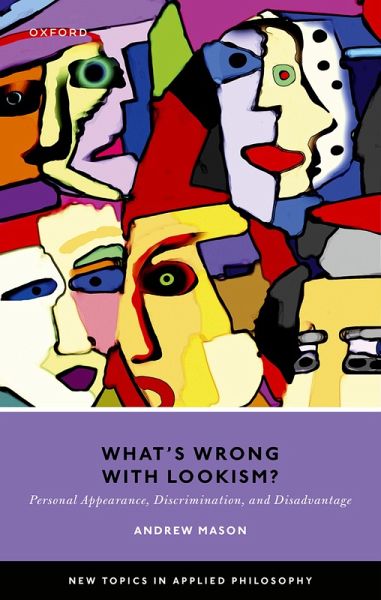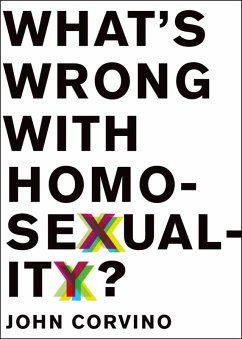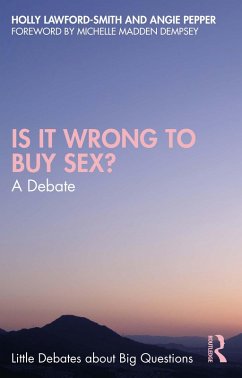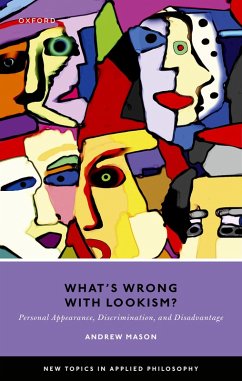
What's Wrong with Lookism? (eBook, ePUB)
Personal Appearance, Discrimination, and Disadvantage
Versandkostenfrei!
Sofort per Download lieferbar
41,95 €
inkl. MwSt.
Weitere Ausgaben:

PAYBACK Punkte
21 °P sammeln!
People are treated differently as a result of their looks. But when is appearance discrimination, or "lookism" as it is often called, morally objectionable? This issue is important for at least two reasons. First, the benefits that flow to people who are regarded as visually attractive are sizeable and are enjoyed in a number of contexts, including employment, personal relationships, education, politics, and the criminal justice system. Second, appearance discrimination is of moral interest not only in its own right, but also in terms of its connection to other forms of discrimination. Appeara...
People are treated differently as a result of their looks. But when is appearance discrimination, or "lookism" as it is often called, morally objectionable? This issue is important for at least two reasons. First, the benefits that flow to people who are regarded as visually attractive are sizeable and are enjoyed in a number of contexts, including employment, personal relationships, education, politics, and the criminal justice system. Second, appearance discrimination is of moral interest not only in its own right, but also in terms of its connection to other forms of discrimination. Appearance norms, that is, norms concerning how we should look, often place greater burdens on disadvantaged groups. As a result, discrimination on the basis of appearance, when it rewards people who conform to these norms, may involve, or interact with, the effects of, wrongful discrimination on the basis of features other than appearance, in a way that aggravates existing injustices. What's Wrong with Lookism? examines the morality of appearance discrimination in three contexts: employment decisions; the choice of friends or romantic partners; and the everyday practice of judging and commenting upon people's looks. Andrew Mason develops a pluralist theory of what makes discrimination wrong that identifies three wrong-making features, namely, disrespect, deliberative unfairness, and contributing to unjust consequences, and demonstrates how the presence of one or more of these features in each of these contexts problematises the lookism that takes place in it.
Dieser Download kann aus rechtlichen Gründen nur mit Rechnungsadresse in A, B, BG, CY, CZ, D, DK, EW, E, FIN, F, GR, HR, H, IRL, I, LT, L, LR, M, NL, PL, P, R, S, SLO, SK ausgeliefert werden.













